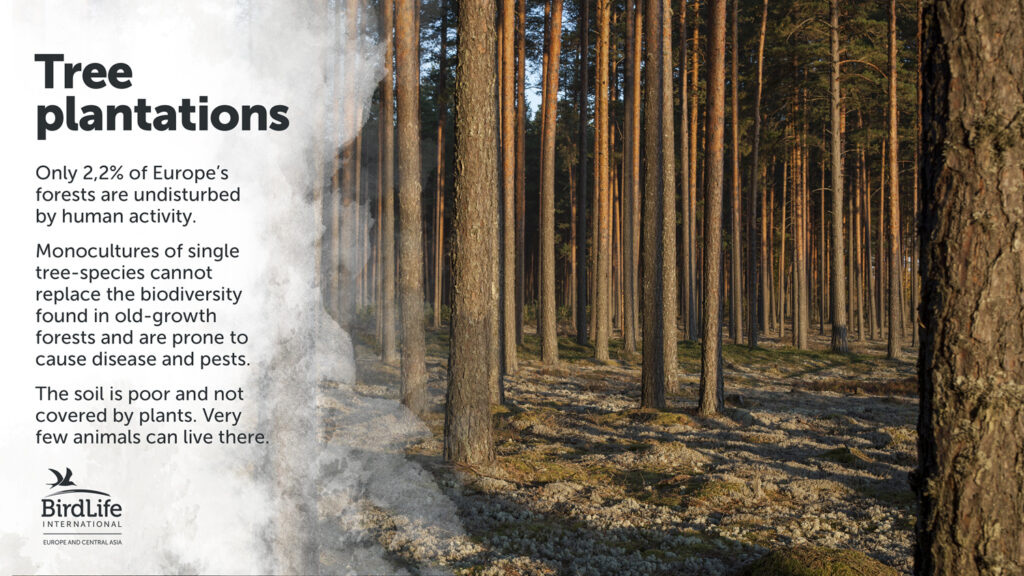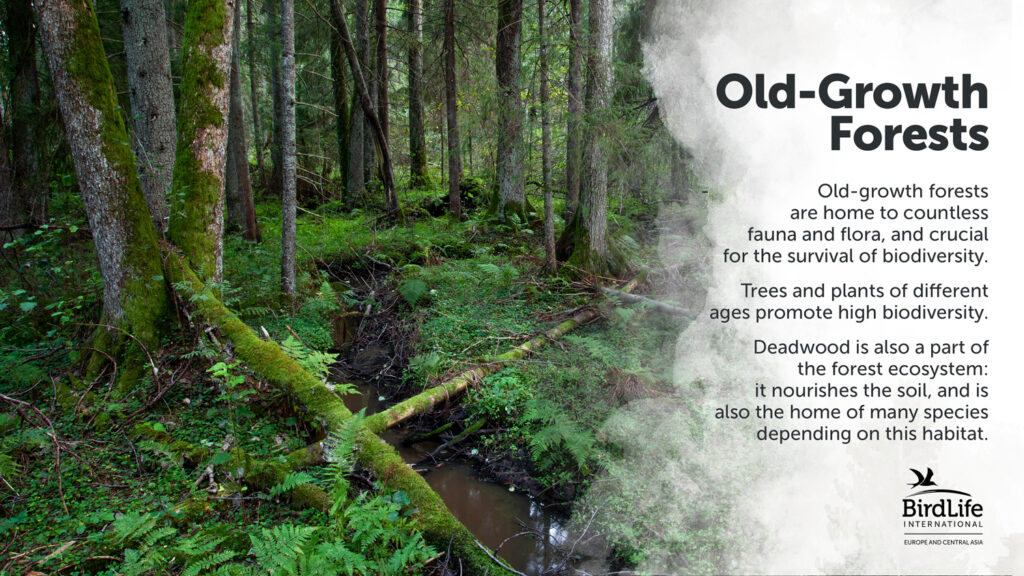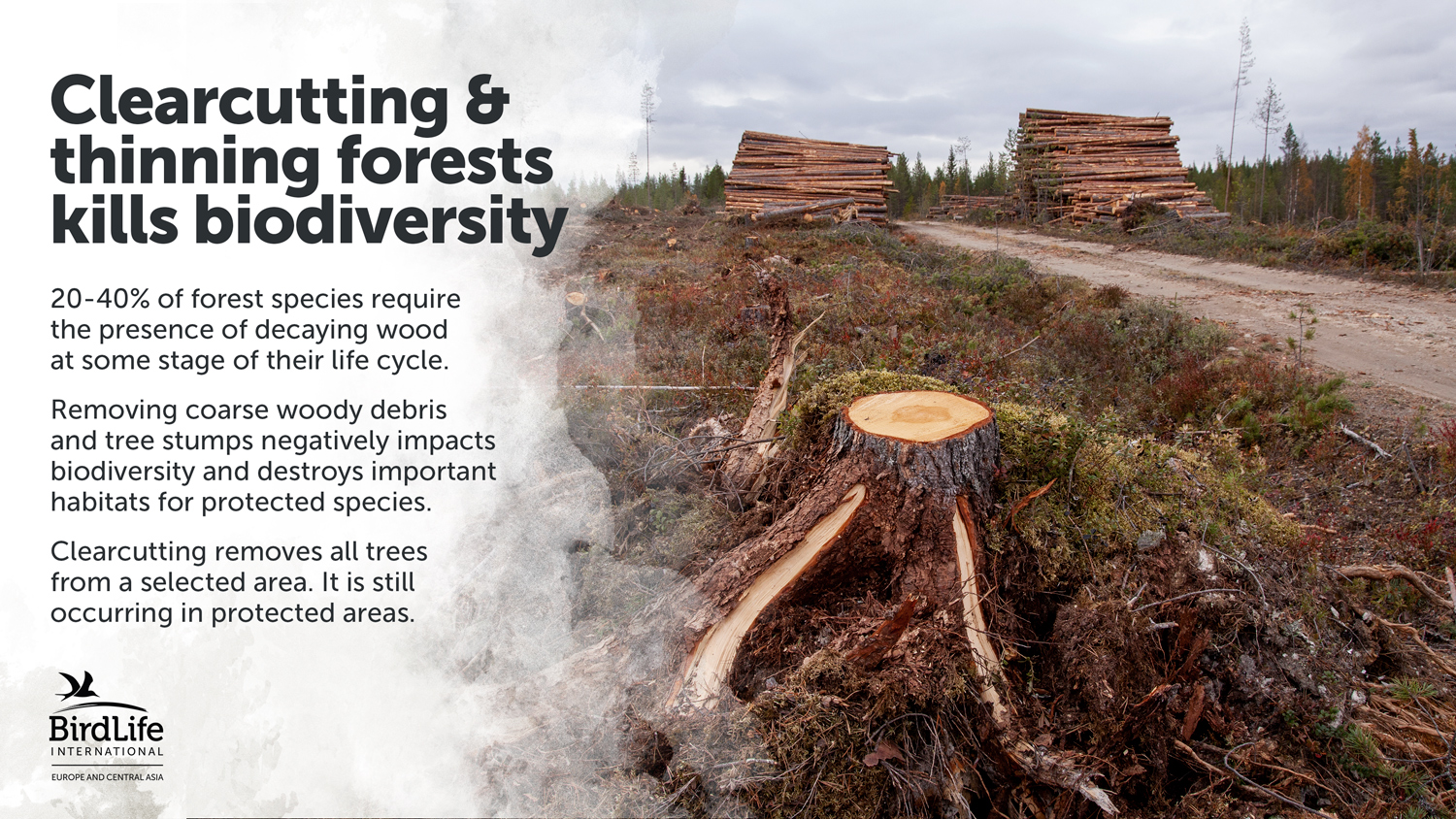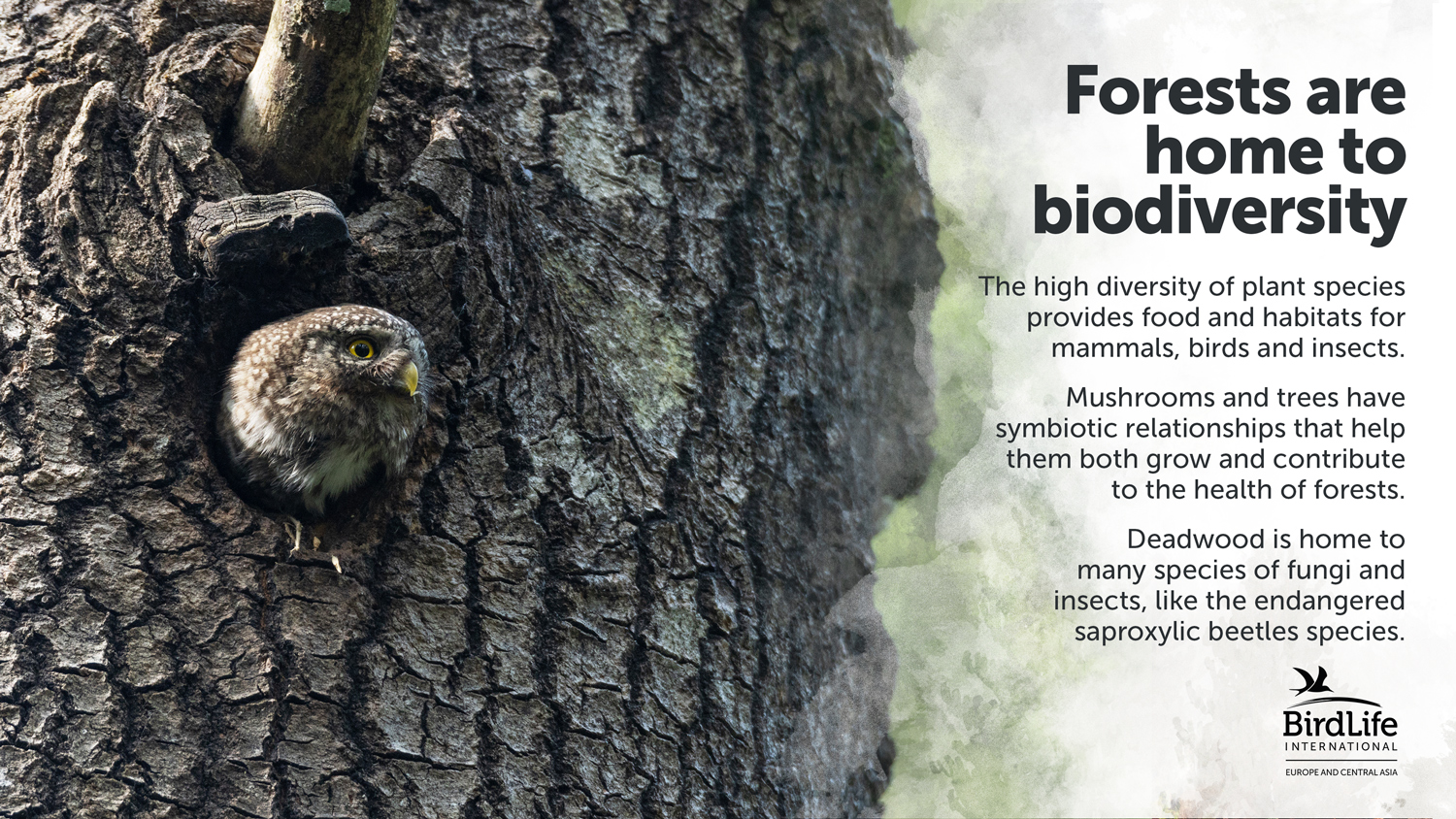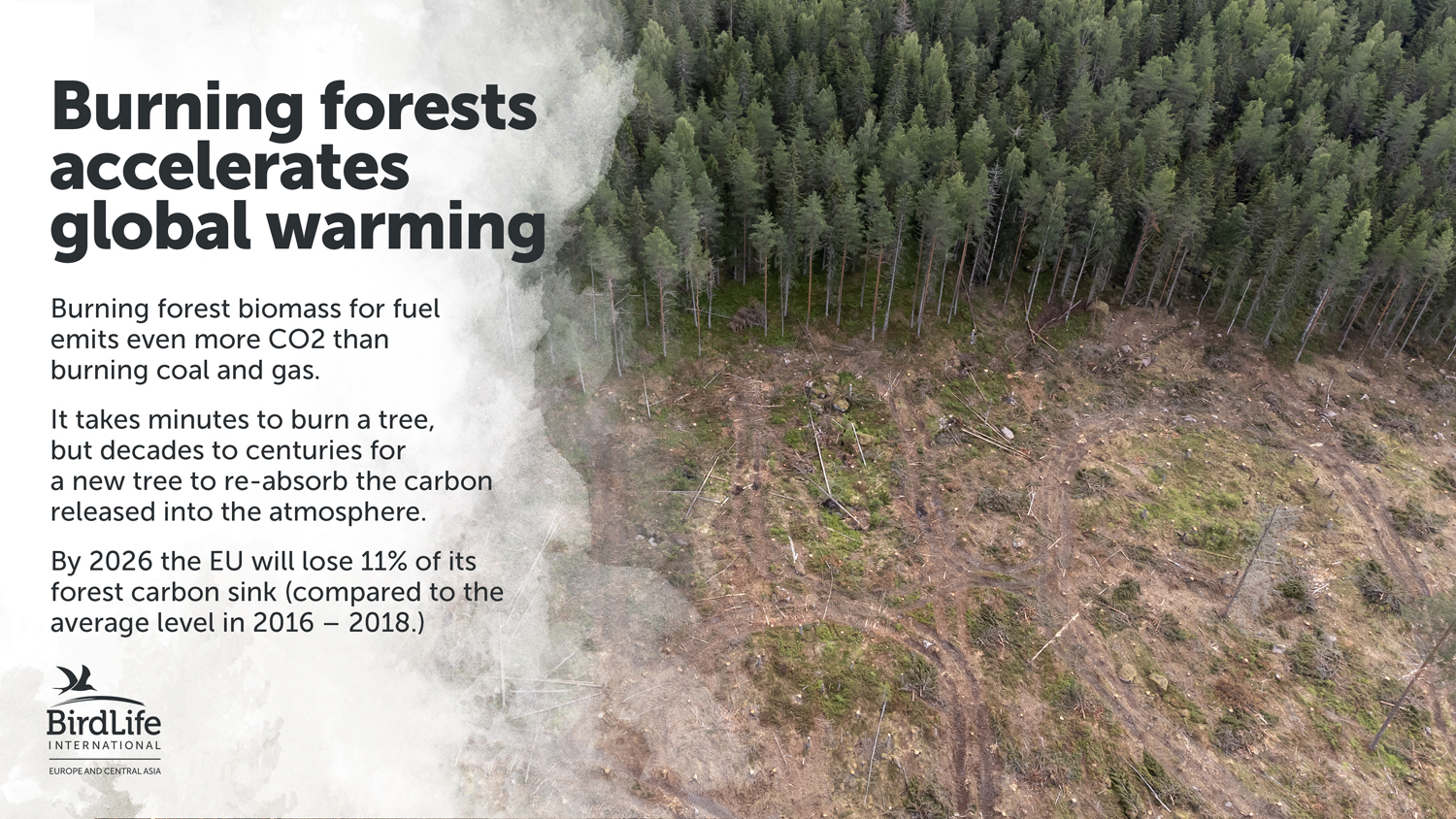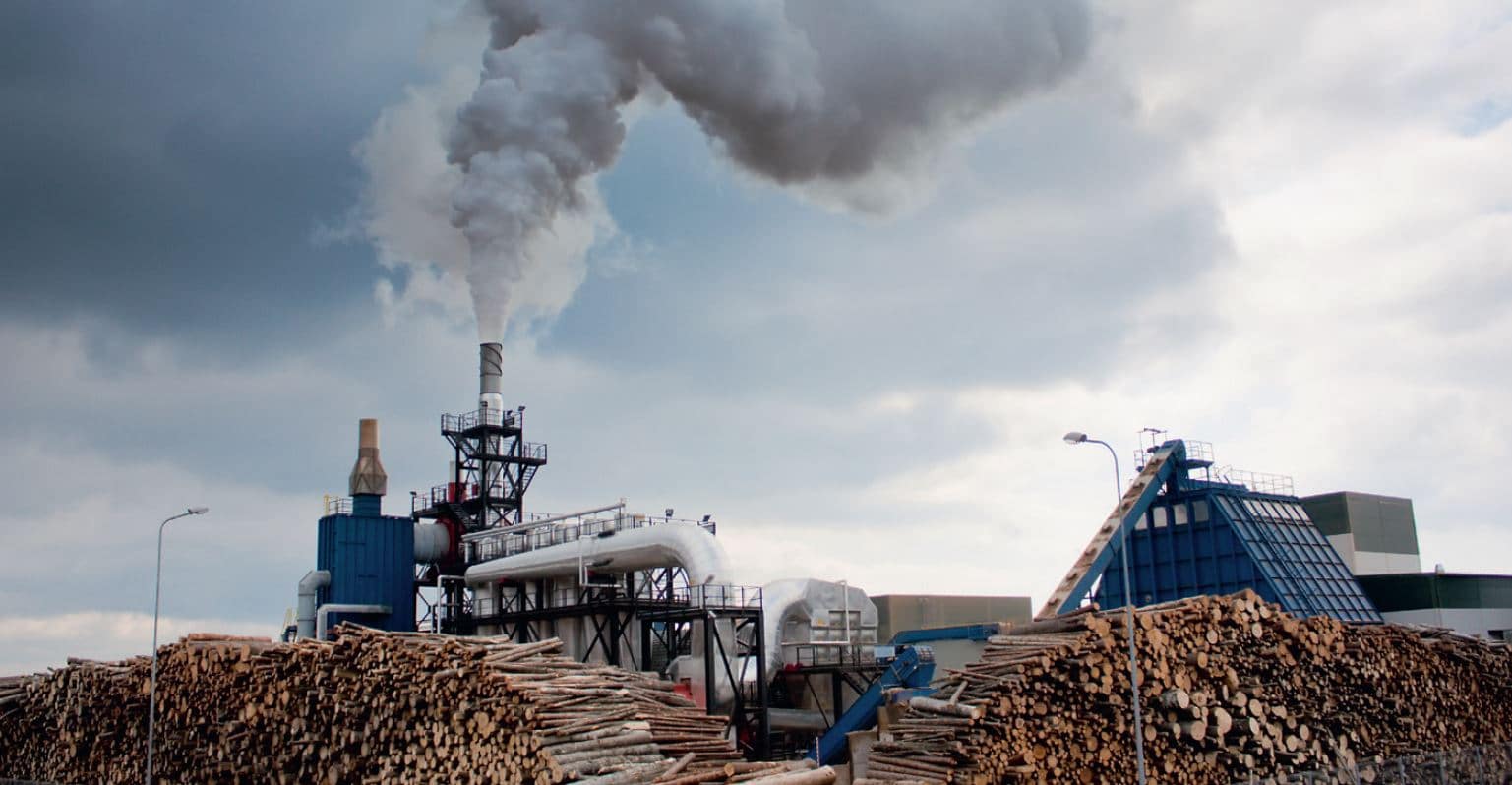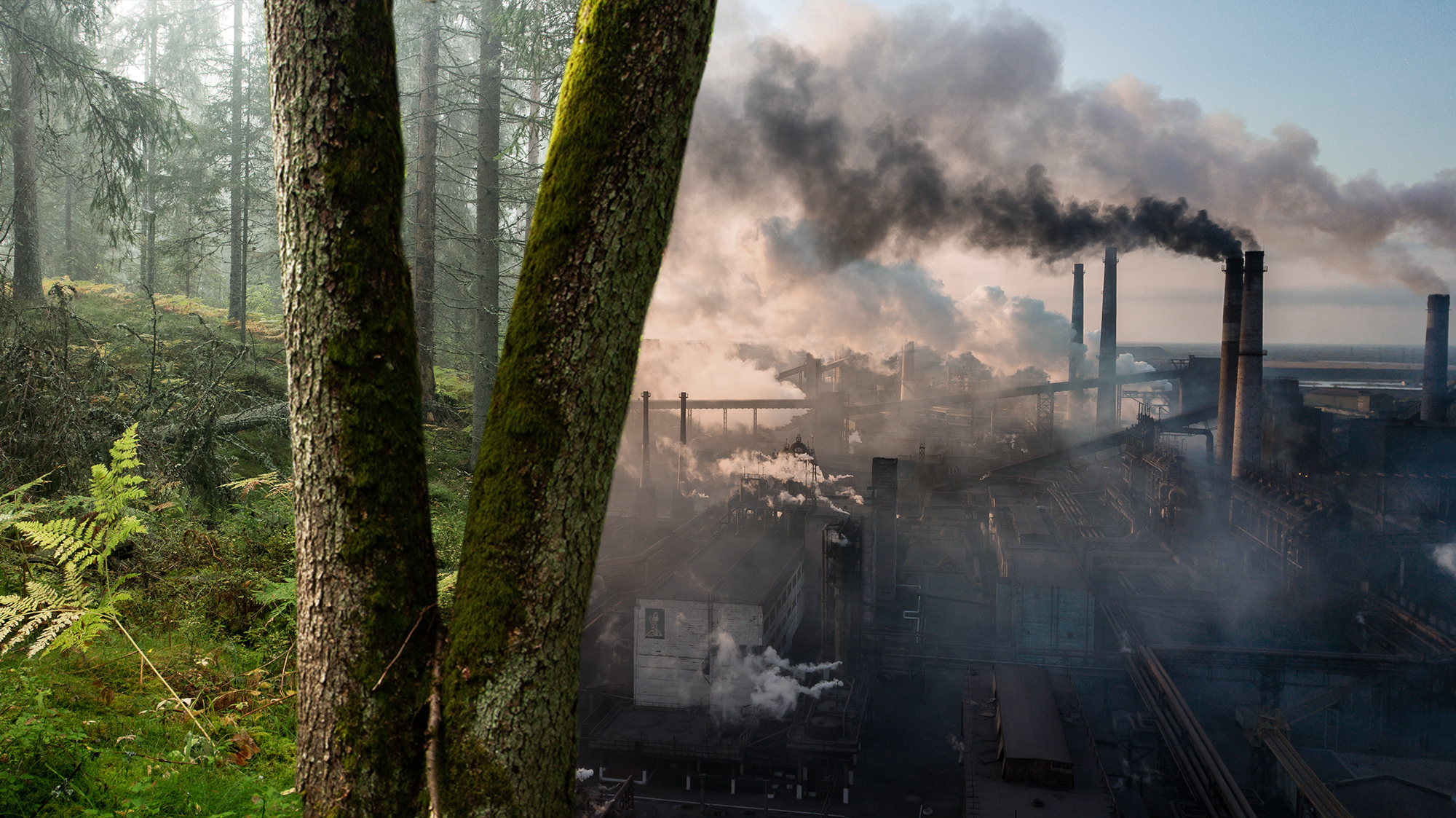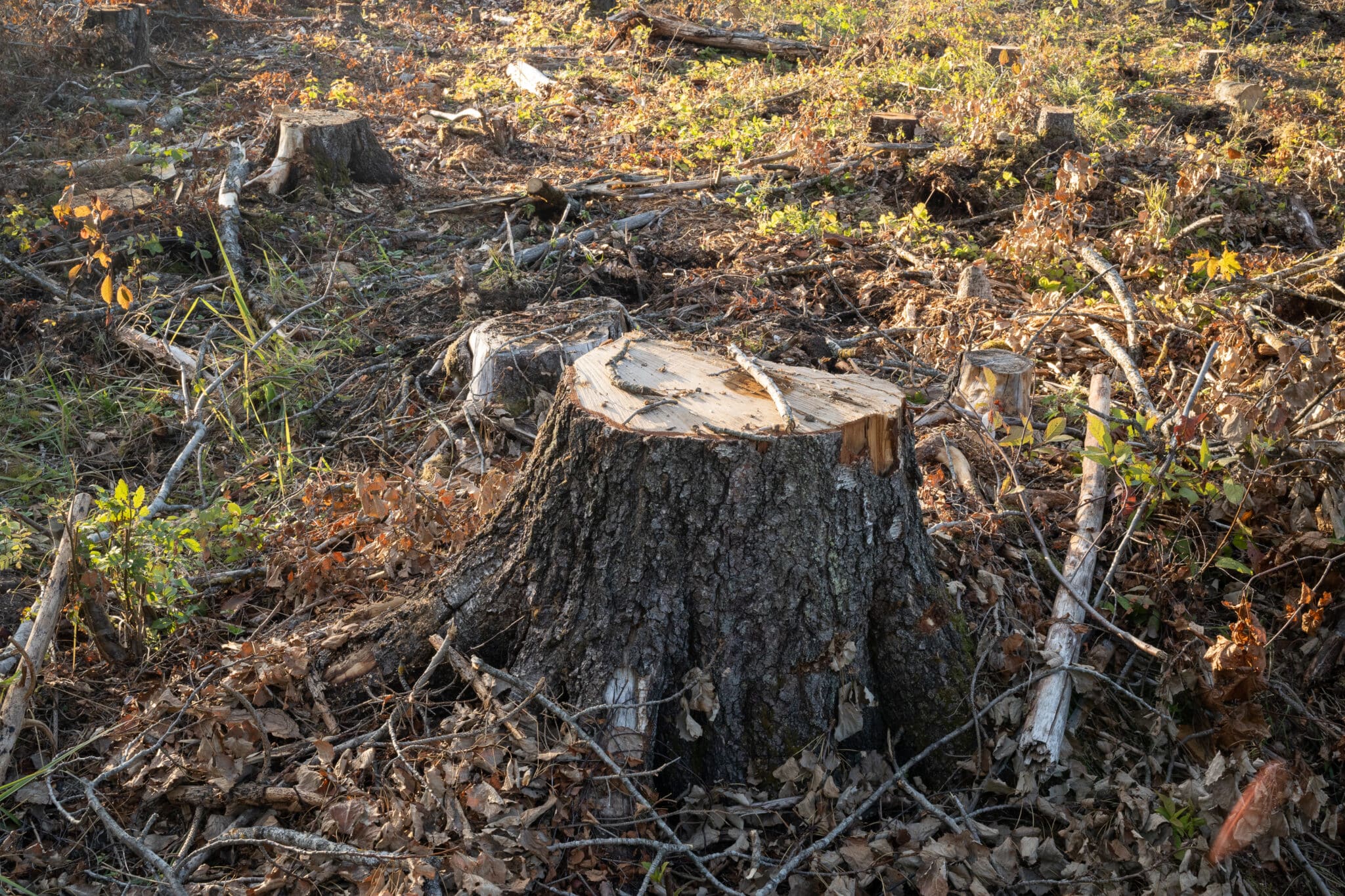Why do our governments continue to burn down our forests?
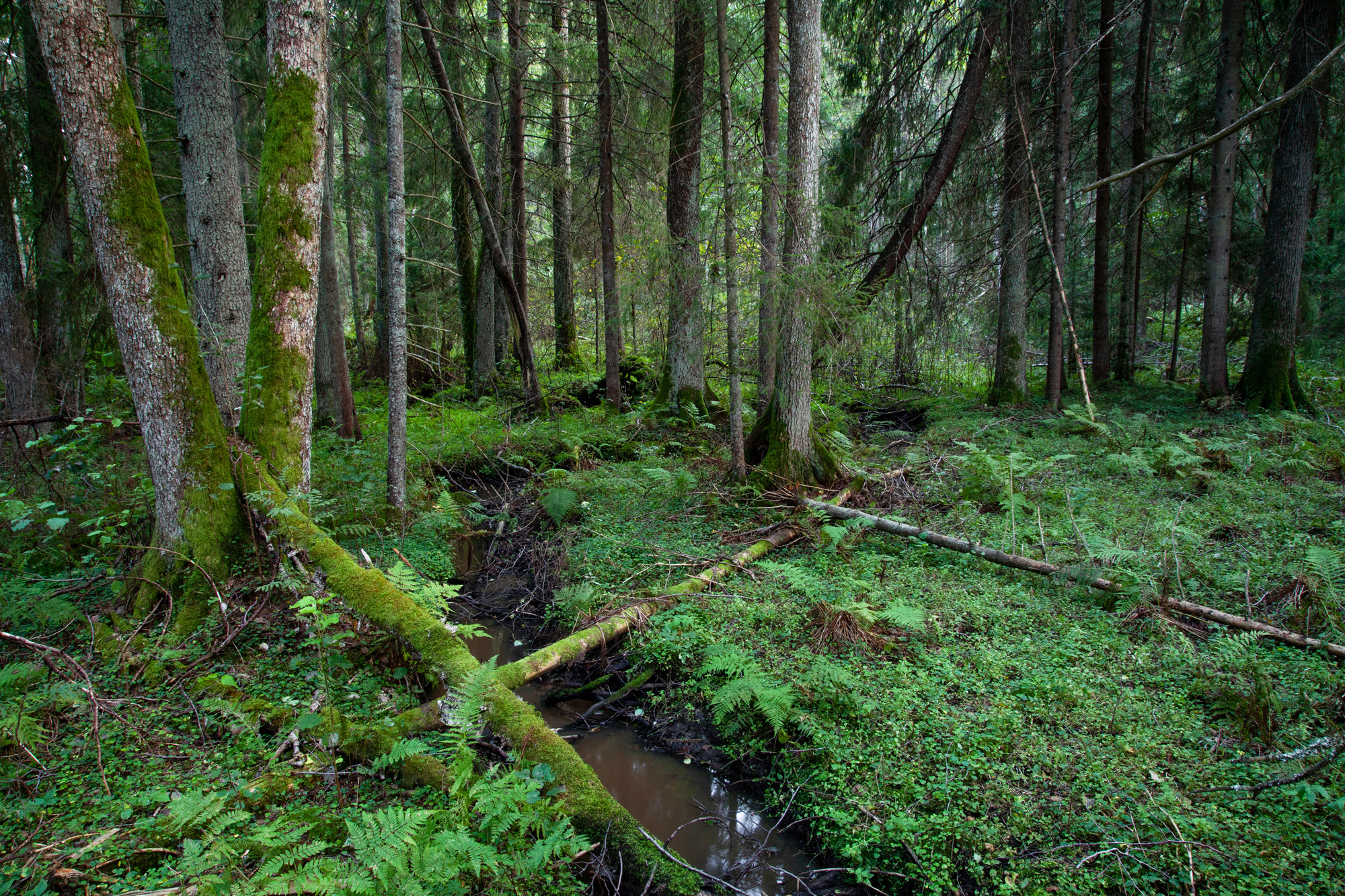
March 21st is the International Day of Forests, and while this day is meant to celebrate our wonderful terrestrial ecosystems, we might not have any forests left worth celebrating in the near future.
By Kenneth Richter, Marilda Dhaskali & Julien Bacus
The European Commission Joint Research Centre has reported that losses to the EU’s forest cover have accelerated since 20151 amid an expansion of the demand for “bioenergy”. In the Baltics, even protected Natura 2000 sites are being logged2 for wood pellets that are being exported to the rest of Europe.
In the United Kingdom, the Drax power station alone burns more wood than the UK’s entire wood harvest. Subsequently, much of it is instead imported from the south of the USA, wetland forests in a global biodiversity hotspot are being destroyed to meet European demand3 for “bioenergy”.
And despite stark warnings from scientists4 that this type of energy actually accelerates the climate crisis due to the high emissions of greenhouse gases that come from burning wood, EU governments continue to count it as a form of “renewable energy” and subsidize it with 16 billion euros annually.
Bioenergy is the energy produced by burning biomass. In Europe, 60% of bioenergy is produced from burning wood5. Burning forests. And this has dire impacts: biodiversity loss, global warming, and increasing pressure on our beloved forests.
Alongside this, forests and nature play an immense role in improving our wellbeing. The pandemic revealed how desperately we need proximity to nature. Yet our governments continue to encourage the large-scale logging of forests for “bioenergy”.
But Europe has a chance to change this all. The EU’s Renewable Energy Law, which determines which types of energy are considered “renewable” and will be subsidized, is currently being reviewed. This is the opportunity to stop the greenwashing of the burning of our forests.
Birdlife Europe and Central Asia is working as part of coalition of NGOs to end the destruction of forests for energy. Here are our core demands for nature- and climate- friendly, actually renewable, energy.
Sources
- https://www.nature.com/articles/s41586-020-2438-y
- https://elc-insight.org/eu-renewable-energy-policy-subsidizes-surge-in-logging-of-estonias-protected-areas/
- https://www.nrdc.org/sites/default/files/global-markets-biomass-energy-06172019.pdf
- https://www.wwf.eu/?2128466%2F500-scientists-tell-EU-to-end-tree-burning-for-energy
- https://publications.jrc.ec.europa.eu/repository/bitstream/JRC122719/jrc-forest-bioenergy-study-2021-final_online.pdf
Image credits: adamikarl/Shutterstock.com
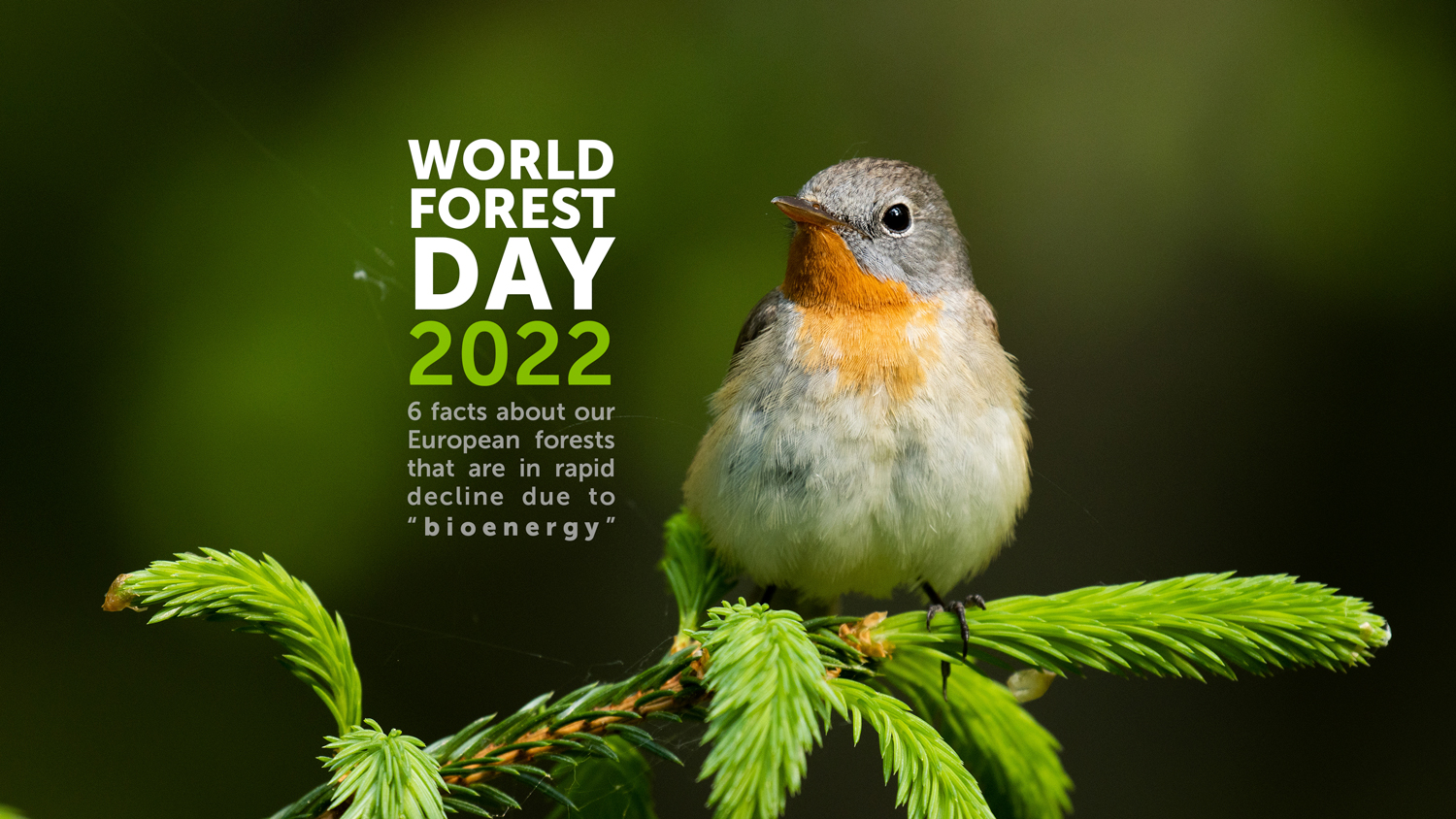
Sources of the visuals:
- https://forestdefenders.eu/wp-content/uploads/2021/03/Forest-Defenders-Alliance-Brief-March-2021.pdf
- https://media.voog.com/0000/0037/1265/files/Biomass_report_ENG%20_2020.pdf
- https://pracownia.org.pl/upload/filemanager/pracownia.org.pl/Publikacje/Forests-to-burn-Kolbusz-Mikos-2022.pdf
- https://foresteurope.org/wp-content/uploads/2017/08/Summary_web.pdf
- https://ec.europa.eu/environment/nature/conservation/species/redlist/downloads/European_saproxylic_beetles.pdf
- https://www.europarc.org/news/2017/12/protecting-old-growth-forest-europe/
Image credits: adamikarl/Shutterstock.com, Viesinsh/Shuttertock.com, Wirestock Creators/Shutterstock.com
You might also be interested in:
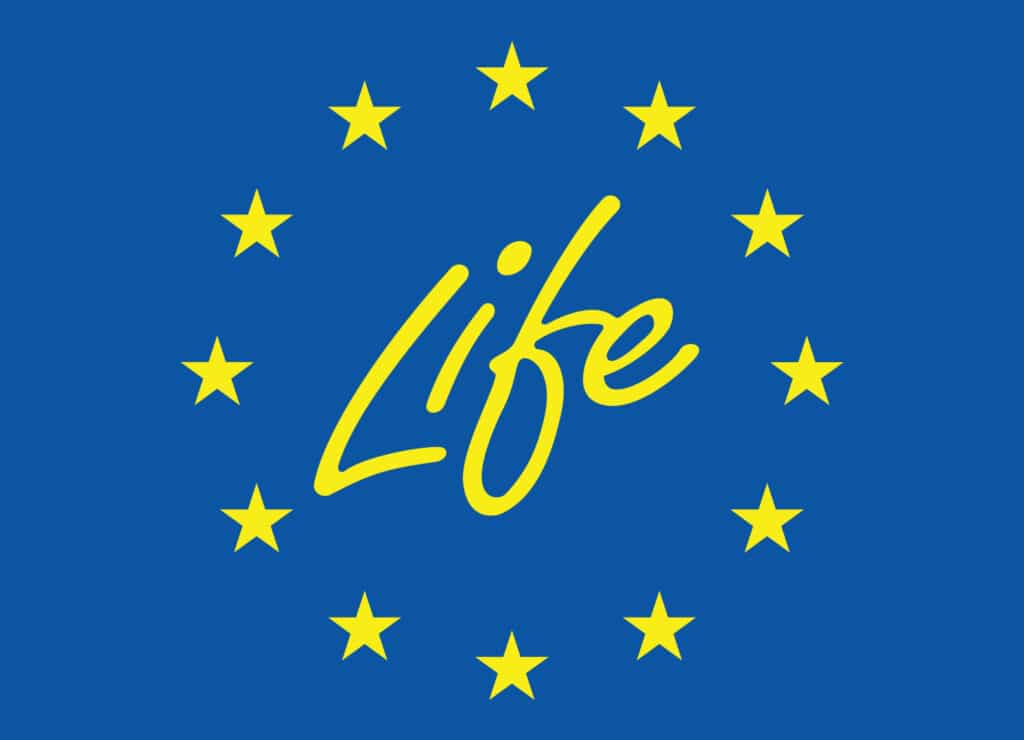 | Stichting BirdLife Europe gratefully acknowledges financial support from the European Commission. All content and opinions expressed on these pages are solely those of Stichting BirdLife Europe. The European Commission is not responsible for any use that may be made of the information it contains. |
